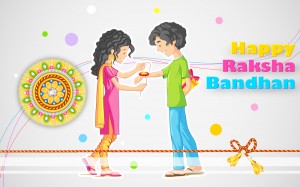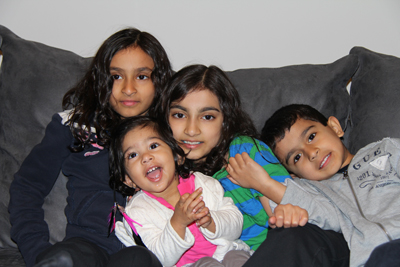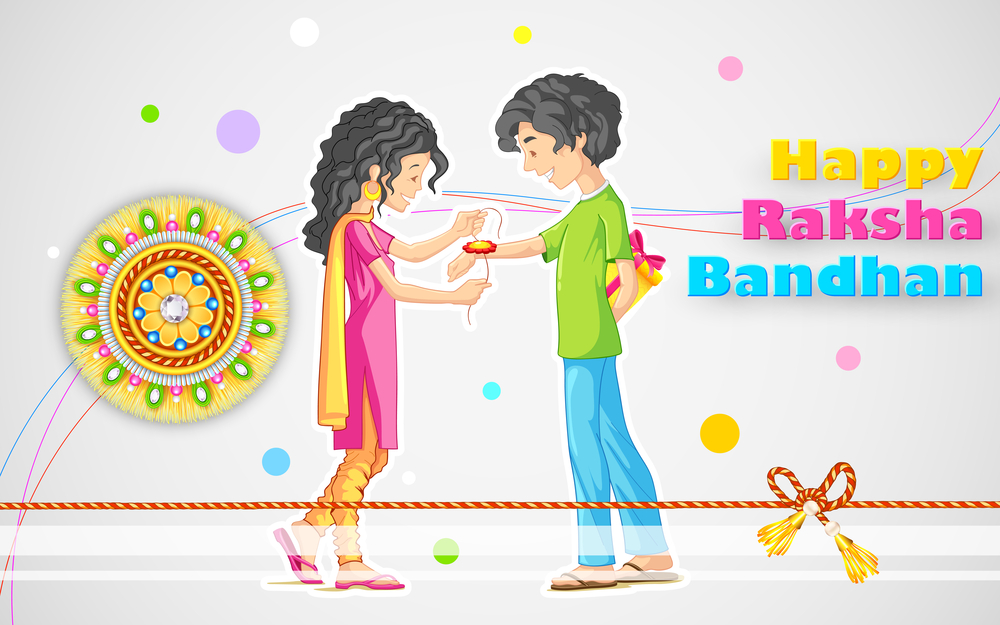The importance of celebrating Rakhi
By Anchel Krishna @anchelk
Anchel talks about how why Rakhi is an important tradition in her family.
 I grew up in a family of 10 kids, despite the fact that I only have two sisters. On my dad’s side of the family there were 10 kids born within 10 years. All were boys with the exception of my eldest cousin, my two younger sisters and I.
I grew up in a family of 10 kids, despite the fact that I only have two sisters. On my dad’s side of the family there were 10 kids born within 10 years. All were boys with the exception of my eldest cousin, my two younger sisters and I.
In our earliest years, like many immigrant families, my dad and his brothers shared their homes. They had two houses in Toronto, side-by-side and two families lived in each house. When I was about five years old my family moved to a different city, about an hour and half away from the rest of the family. We frequently visited Toronto and spent at least a few weeks in the summer with our cousins. It was a great way to grow up.
My boy cousins taught me about the important things when we were kids: how to play catch, the intricacies of WWF wrestling, differences between the Macho Man, Hulk Hogan and Jake the Snake, how to properly body slam a person on the couch (and what it felt like to be body slammed on the couch).
The eldest cousin (the girl) taught me about the fun in playing Barbies and the secret places to hide at 4:30 every afternoon so we could watch the Young and the Restless over my dadi’s shoulder (we weren’t allowed to watch this ‘grown up’ show). These days we would call this gender stereotyping but in those days it was just always fun.
It was a fun way to grow up. And these memories were as much a part of my childhood as my own memories of scrapping with my sisters and playing on our backyard swing set.

Photo: Courtesy Anchel Krishna
And now, as we’re all in our 20s and 30s and in various stages of life (married with kids, married, engaged, single) we continue to get together and continue this tradition. This year we will have one cousin who is out of province and another who is out of the country, but they will be in our hearts as we tie rakhis on the others.
Dilip’s family doesn’t celebrate rakhi (they are Tamil Brahmins and it’s not a custom for them), but when Syona was born my eldest cousin asked us if Syona could tie rakhi on her son – the only boy in the next generation on my side so far. I was so happy to say yes to make sure this tradition lives on with my daughter.
And just last week when Syona saw him she called him bhaiya. This is the first time she’s been able to say this word, and it has special meaning since Syona’s cerebral palsy makes it hard for her to talk. This new verbal milestone will make this year’s rakhi extra special. Her cousin also had a huge smile on his face because he’s the baby of his family and calling him bhaiya graduated him to big-boy status.
Rakhi is a tradition that has always brought our family together. I’m excited that it will continue to the next generation.
What family traditions do you have? Do you celebrate rakhi?
©masalamommas and masalamommas.com, 2016-2017. Unauthorized use and/or duplication of this material without express and written permission from this site’s author and/or owner is strictly prohibited. Links may be used, provided that full and clear credit is given to masalamommas.com and Masalamommas online magazine with appropriate and specific direction to the original content.



There are no comments
Add yours